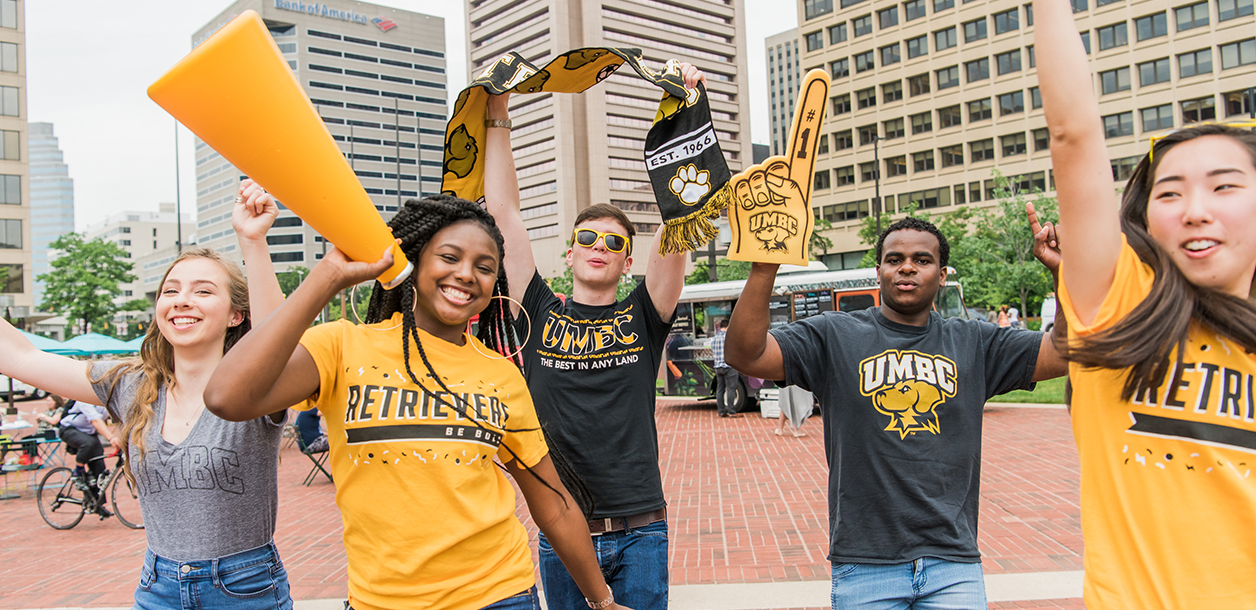With classes predominantly online this fall, former students who’ve had to pause their studies are re-enrolling at UMBC with graduation as their goal.
When Nick Martorelli, management of aging services, originally stepped away from taking classes at UMBC in 2015 to help take care of his mother as she underwent kidney failure, he had no way of knowing that he’d ever return to his degree. He certainly couldn’t have guessed that his experience setting up his mother’s daily, overnight dialysis would offer him a leg up in his studies.
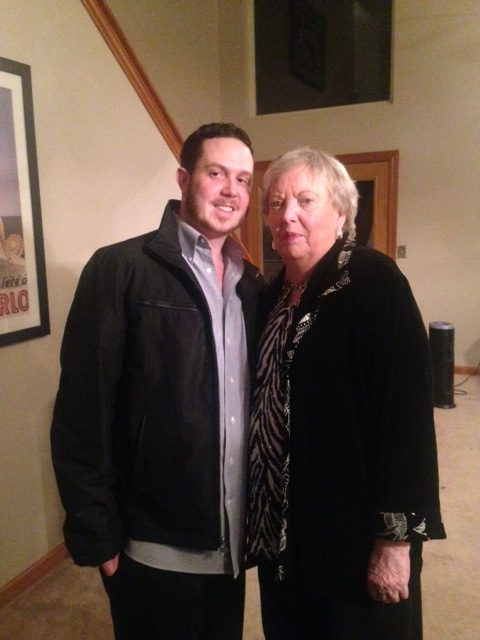
“One thing I noticed when taking care of my mom—I had to learn a lot of directions for medication and nutrition, sterilizing the room for dialysis,” says Martorelli. “I had to memorize how to set up the dialysis. You had to really be focused the whole time and after doing that for two years, now I’m a lot more focused taking classes, and I can really pick up things more quickly.”
In mid-August, Martorelli and other Retrievers who had earned at least 60 credits and were in good standing academically but were not currently enrolled in classes received an offer to return to the University to finish their remaining degree requirements. Yvette Mozie-Ross ’88, vice provost for enrollment management and planning, says a similar correspondence is sent out each semester to those close to degree completion but who remain unenrolled. But the pandemic changed one key element of their communication—like almost every other attendee, students could now return to school online.
The online incentive, says Martorelli, changed his whole perspective. Within a week of getting the mailer, Martorelli—who lives in Missouri—was signed up for a full load of classes and anticipates graduating in May 2021. The finish line is in sight.
Relying on a great support system
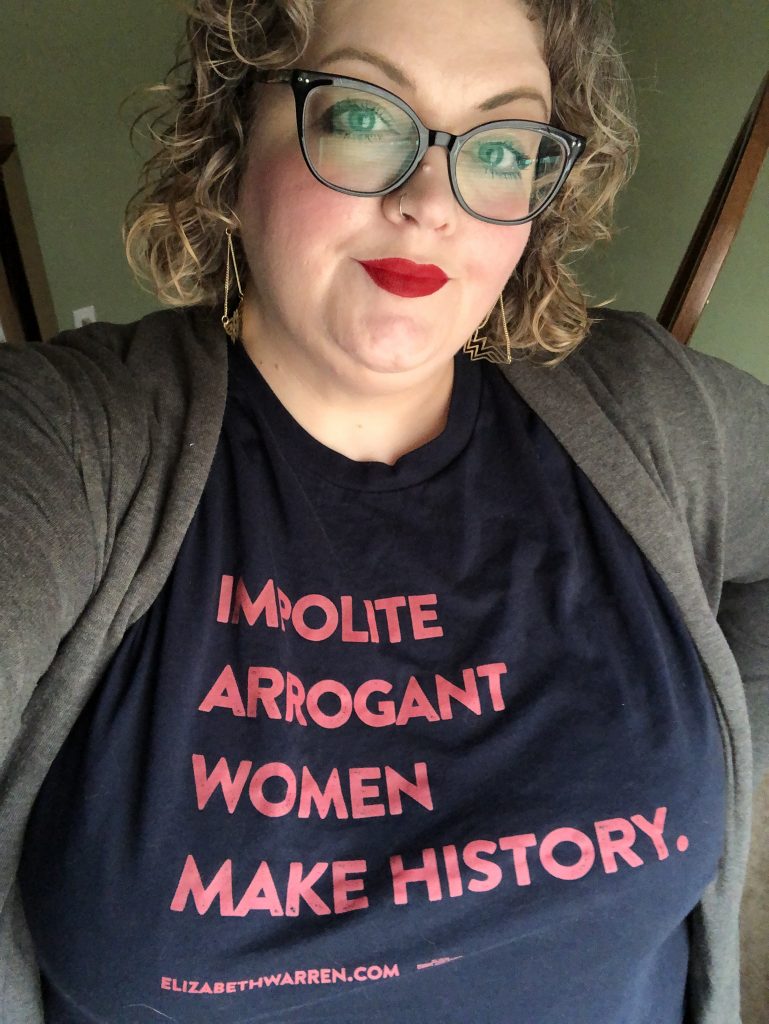
The summer of 2020 started one way and ended in quite another, Kelly Broderick, gender, women’s, and sexuality studies (GWST), puts it simply. Let go in June from her position as box office manager at Baltimore Center Stage due to the cancellation of their season, Broderick found herself facing a momentous birthday while questioning what life had in store for her next.
“It felt like all these universal things were dropping on me telling me I had to go back to school,” says Broderick, who only has three requirements to complete before graduation.
Within two weeks of receiving the Finish Line brochure inviting her to return to her studies, Broderick was re-enrolled and ready to finish a chapter of her life she had started in 1998 when she matriculated at Towson University immediately following high school. Broderick eventually left school to work, creating a career in retail and eventually box office management. When she first arrived at UMBC in 2012, it was as an adult learner and she worked to make a place for herself at UMBC, especially through spearheading adult scholars programming at the Women’s Center.
Throughout the process of getting signed up for classes, Broderick reached out to her old contacts in GWST and to Jess Myers, director of the Women’s Center. “She really helped me out,” says Broderick. “She helped me find a small scholarship that assisted with books and other necessities. This process is just reminding me of what a great support system UMBC has. I have all these people that are supporting me in this and it feels really good.”
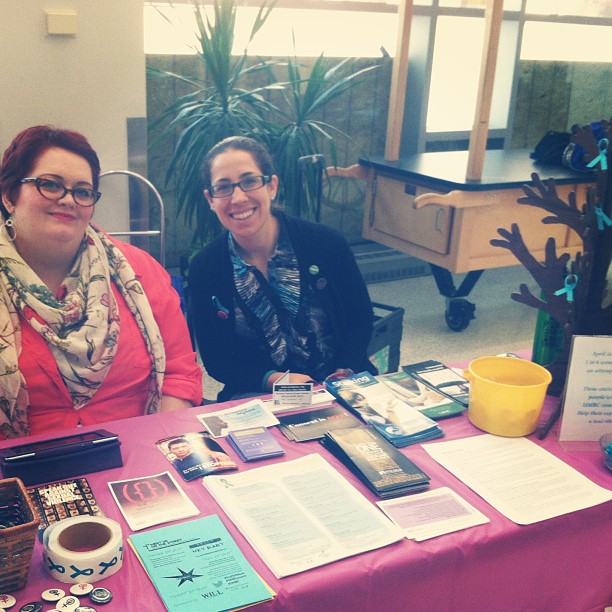
After six years away from the classroom, Broderick says she’s excited to jump back into a learning environment—and receiving one of the senior completion grants offered through Mozie-Ross’s office certainly helped. “Everything has the bright and shiny factor on it again. Which is really nice,” she adds.
At the end in 2014, when Broderick paused her studies, she was dealing with some burnout, she says, and like Martorelli, her parents were facing health challenges that required her attention. “But now, I’m definitely feeling that new school excitement again, and it’s fun to be using that side of my brain again.”
“A lot of this for me is a personal thing,” says Broderick. “I just want to know I can finish my degree. Although I’ve mostly moved past the point in my career where it affects me to not have a degree, because of my experience, I’m excited to not have that be a hurdle in my future job search.”
Serving our most vulnerable students
According to Mozie-Ross, of the 2,700 former students who received the Finish Line outreach, 123 students re-enrolled. “They have busy lives,” shares Mozie-Ross, “and they don’t fit nicely and neatly into this traditional brick and mortar structure…and so to be able to announce to this audience that just about all of our courses are now online—you’re right near the finish line—they just responded. It’s like we spoke to them.”
Martorelli and Broderick back up Mozie-Ross’s data that the majority of the students to return were originally transfers. “That tells you a lot about our transfer population. They have lives, they have jobs, things get in the way…. When you think about who we are serving through this campaign, we’re serving our most vulnerable students,” says Mozie-Ross. She adds, that women and minority student populations represent a larger than expected portion of the Finish Line returnees when compared to the overall UMBC student population.
“We have an obligation to do this,” says Mozie-Ross. “This is exactly why we’re in higher ed.”
Designing a unique career trajectory
For Christopher Lee, one class stands between him and his degree, although the missing course hasn’t stopped his impressive career trajectory as a user experience (UX) professional. Now a UX content strategist for Facebook, Lee saw the Finish Line program as the perfect last step to his unique path to his diploma, and ultimately a necessary stepping stone to pursuing his master’s in library science.

For Lee, psychology, extenuating family circumstances interrupted his final requirement for his English minor. He and his mother were facing eviction from their home when he was a junior, he says, and “I was pulling from a limited amount of time and attention and effort, and naturally one thing had to give. That thing turned out to be school.”
Even with an incomplete transcript, Lee was able to make inroads in his career. He found his first job through a UMBC career fair and with that experience was able to apply for a content strategy apprenticeship in Brooklyn with the design agency Huge. Part of his takeaway from this training period was learning to understand information organization and see the relationship of different digital elements and the way the user interacts with the content. “You’re really thinking through the psychology of how people are internalizing information,” explains Lee.
Now enrolled in his final class, Public Speaking and Democratic Participation, Lee says the online format has some surprisingly successful aspects. The small group discussions in Blackboard Collaborate are often robust, says Lee, wryly noting that they have quite the current material to be working with this semester. In addition to no end of discussion topics, Lee shares that the class “has created an environment where people feel comfortable sharing their perspectives.”
At UMBC, Lee continues, “there has been no lack of people who have been supportive, who have seen the potential in me when at times it was unrealized or unseen by others. There was always a genuine concern for my well-being.”
Everyone has their own path
For Briana Lucia Capuano, social work, the online option to finish her two final degree requirements has not only made graduating while caring for her four children a possibility, it also saved her four hours of a daily commute when she was attending classes at UMBC and living in southern Maryland.
Capuano’s last semester was in spring 2019, when she found out she was pregnant with her son Lucca. “This exciting development for our family,” says Capuano, “meant that I would be taking another year away from school to care for him.”
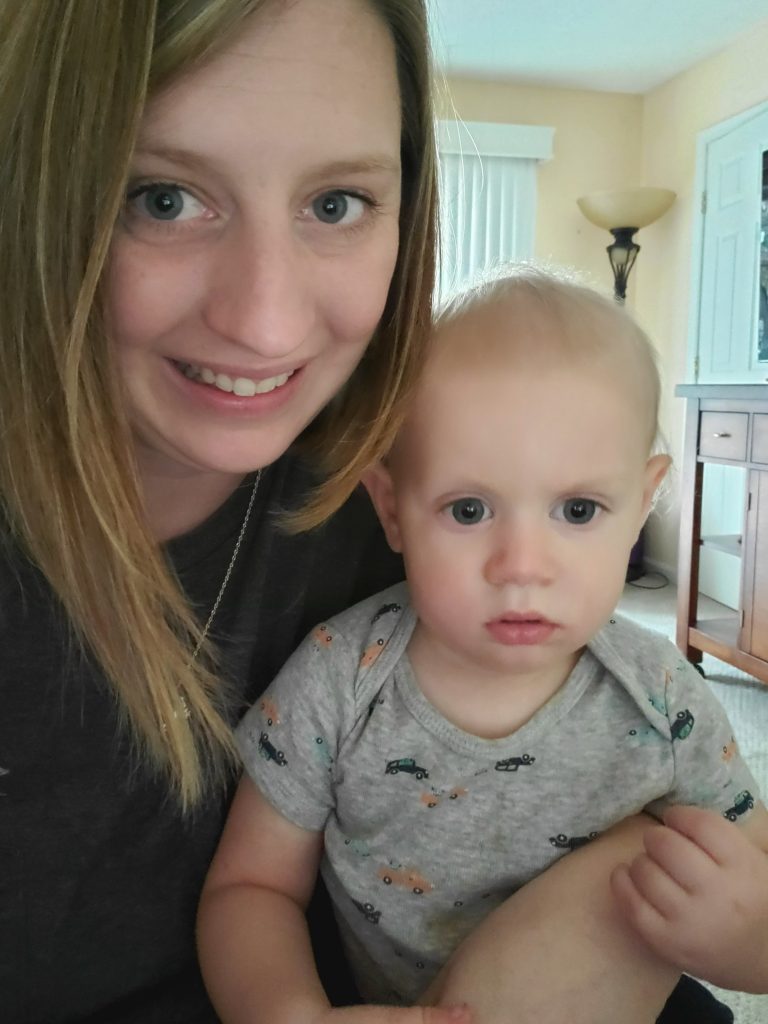
Sharing a house during the pandemic with two school-aged children, a toddler, Lucca—who is almost one now—and a working spouse hasn’t been easy, says Capuano. “I honestly didn’t believe I’d ever get to the end, but with COVID-19 and more classes offered online, it seemed like the perfect opportunity to finish up with all I have going on.”
“If there’s one piece of advice I could give any student in college,” shares Capuano, “it’s that everyone has a different path, so don’t compare your progress to anyone else’s. Just go at your own speed, and stay positive because your goals are achievable.”
Understanding what’s at stake
Lee summarizes the Finish Line program best: “We’re growing and expanding our understanding of what it means to be successful. Despite the fact that I took a slightly different pathway to where I’m headed, and someone else might take a less winding route—I’m glad there’s a system at UMBC to support that.”
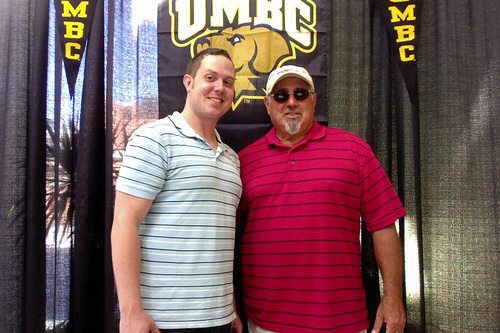
From an institutional perspective, Mozie-Ross sees so much value in having students with a range of life experience participating in the classroom experience. “I think they set the tone, and they set the standards for the academic experience because they are far more focused and grateful for the opportunity to further their education.”
Martorelli agrees with Mozie-Ross’s assessment. As a long-term caretaker, the perspective he brings to his management of aging services courses is not a hypothetical case study—it’s truly a matter of life or death. This cohort of students, emphasizes Mozie-Ross, understands that there’s something at stake.
In 2019, UMBC and the University of Baltimore were designated as Maryland’s first “age-friendly” universities for supporting non-traditionally aged students. The Finish Line program is another way UMBC is upholding its promise to encourage and advocate for students wherever they are on life’s continuum.
“It speaks to the work we’re doing to meet these diverse populations of students where they are,” concludes Mozie-Ross. “The fact is that their lives may have required that they disrupt their education for a little bit, but we’ve…leveraged this moment in time, during COVID-19, when most of our classes are online, and gone out and pulled them back in.”
*****
Interested in pursuing your degree at UMBC or returning to your studies here? Visit our undergraduate admissions page to learn more.
Header image taken in 2018 by Marlayna Demond ’11.
Tags: Erickson School, Gender and Women's Studies, Management of Aging Services, Psychology, social work

